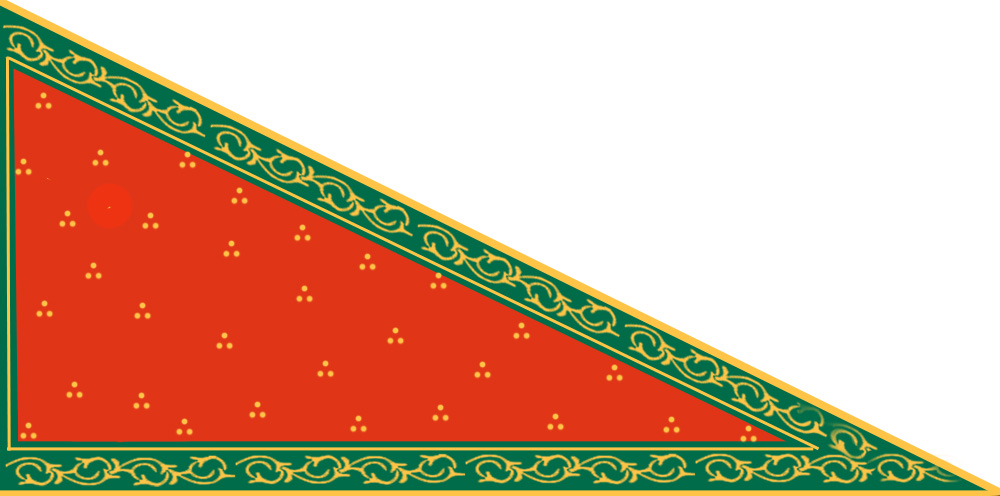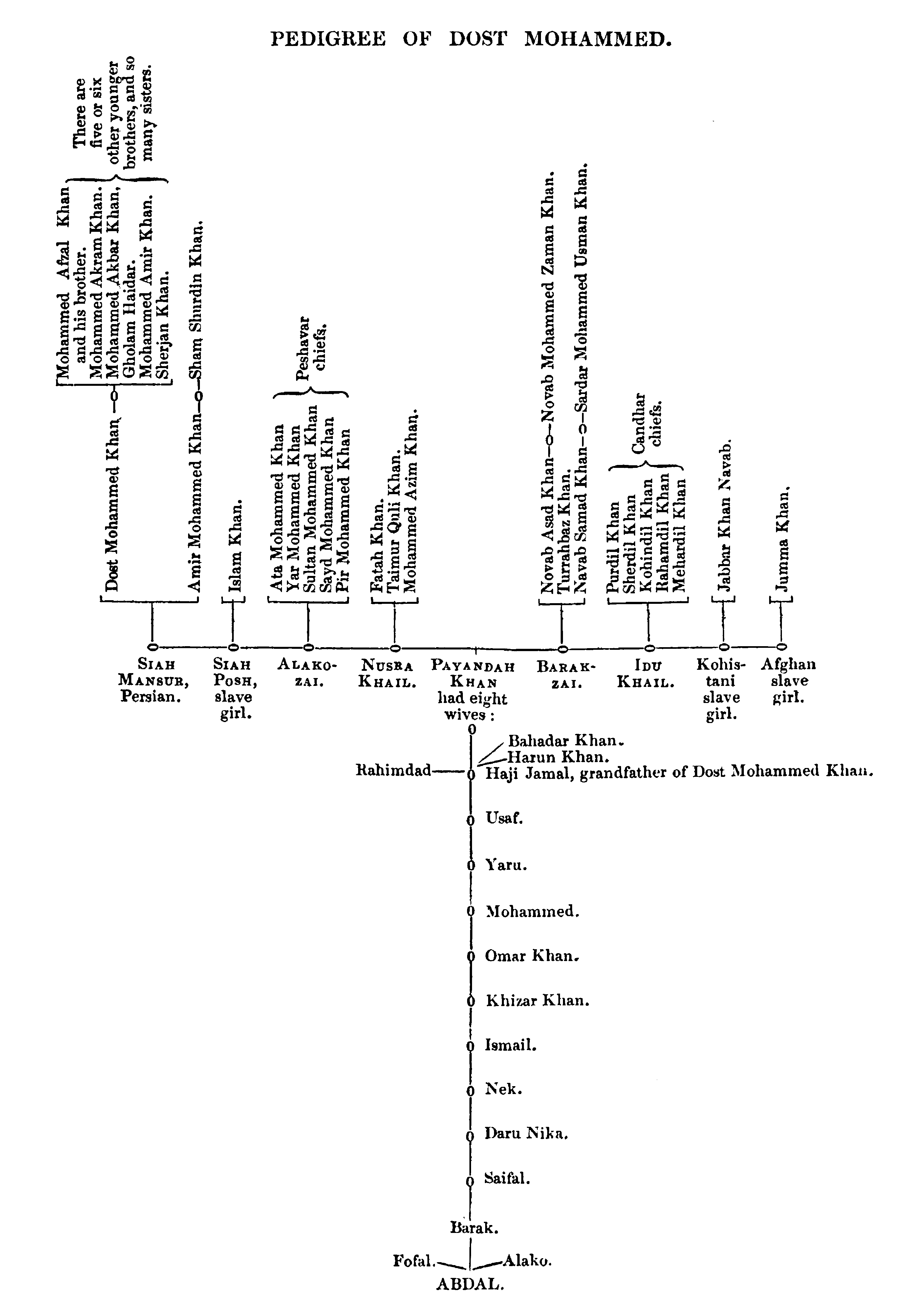|
Battle Of Nowshera
The Battle of Nowshera ( ps, د نوښار جګړه; pa, ਨੌਸ਼ਹਿਰ ਦੀ ਲੜਾਈ) was fought in Nowshera in March 1823 between the Yusufzai Afghans, supported by the Peshawar sardars, alongside Azim Khan Barakzai, the Afghan governor of Peshawar, where they would face the Sikh armies led by Maharaja Ranjit Singh. Ganda Singh (1986) ''Maharaja Ranjit Singh: First Death Centenary Memorial''. Nirmal Publishers Azim Khan was a half-brother of Dost Mohammad Khan, future ruler of Kabul, and later Afghanistan. The battle was a victory for the Sikhs, successfully defeating Azim Khan's armies. This victory allowed them to begin to their occupation of the Peshawar Valley. Joseph Greenwood (1844) ''Narrative of the late Victorious Campaigns in Afghanistan: under General Pollock; with recollections of seven years'service in India''.London:H.Colburn. Following their victory, the Sikhs destroyed the Afghan royal court and the fort of Bala Hissar, Peshawar. However, Hari S ... [...More Info...] [...Related Items...] OR: [Wikipedia] [Google] [Baidu] |
Azim Khan
Sardar Mohammad Azim Khan Barakzai ( ps, عظیم خان) was a Pashtun noble who served as Afghan governor of Kashmir (1812–1819). He was the second son of the Barakzai chief Payinda Sarfaraz Khan, while his elder brother Fateh Khan was kingmaker and Vizier to Mahmud Shah Durrani. He was one of 21 brothers from eight mothers including his half-brother Dost Mohammad Khan who would later become Emir of Afghanistan. Battle and Wars *( Battle of Nowshera) was fought against the Sikh Empire. *( Stratagem of Peshawar) was fought against the Nawab of Amb , Mir Nawab Khan Tanoli. Career In 1810, Mohd. Azim Khan was tasked by Mahmud Shah Durrani to capture his rival for the throne, Shah Shujah Durrani, who had raised an army of partisans in Peshawar. He successfully defeated Shah Shuja's armies and was subsequently involved in the 1812-13 joint Afghan-Sikh capture of Kashmir from its rebellious governor Mohd. Atta Khan Bamzai. He was appointed governor of Kashmir and in 1814 su ... [...More Info...] [...Related Items...] OR: [Wikipedia] [Google] [Baidu] |
William Moorcroft (explorer)
William Moorcroft (176727 August 1825) was an English veterinarian and explorer employed by the East India Company. Moorcroft travelled extensively throughout the Himalayas, Tibet and Central Asia, eventually reaching Bukhara, in present-day Uzbekistan. Early life and education Moorcroft was born in Ormskirk, Lancashire, the illegitimate son of Ann Moorcroft, daughter of a local farmer. He was baptised in 1767 in St Peter & St Paul, the Parish Church of Ormskirk, where there is a commemorative plaque to his life. His family had sufficient means to secure an apprenticeship with a surgeon in Liverpool but during this time an unknown disease decimated cattle herds in Lancashire and young William was recruited to treat stricken animals. His proficiency so impressed the county landowners they offered to underwrite his education if he would abandon surgery to attend a veterinarian college in Lyon, France. He arrived in France in the revolutionary year of 1789 and became the first Eng ... [...More Info...] [...Related Items...] OR: [Wikipedia] [Google] [Baidu] |
Bala Hissar, Peshawar
Bala Hissar (Pashto/Urdu/ Hindko: ), also spelt Bala Hisar, is a historic fortress located in Peshawar, Khyber Pakhtunkhwa, Pakistan. First mentioned by 7th-century explorer Xuanzang, the fort was used as a royal residence for the Durrani Empire since 1747, when the Afghan king, Ahmad Shah Durrani, conquered Peshawar. The Marathas briefly occupied it after capturing Peshawar in 1758 but it was soon retaken by the Afghans. The Sikhs destroyed and reconstructed the fort after capturing Peshawar in March 1823. In 1849, the British East India Company reconstructed the fort's outer walls. The fort now serves as headquarters for Pakistan's Frontier Corps. Etymology The word ''Bālā Hissār'' () is from Dari Persian, meaning "elevated or high fort." According to historian Hussain Khan, this name was given by the Afghan Emperor Timur Shah Durrani. In 1834, the Sikhs named the fort as ''Samīr Gaṛh'' or ''Sameer Garh''. ''Samīr'' was another name for Mount Kailash, a high pe ... [...More Info...] [...Related Items...] OR: [Wikipedia] [Google] [Baidu] |
Joseph Greenwood
Joseph Greenwood (1818 – 18 July 1861) was a soldier and New Zealand politician. Greenwood was born in St Pancras, London. His parents were Thomas Greenwood and Esther née Munden. He joined the 31st Regiment of Foot in Bengal, India, where he distinguished himself as a lieutenant, under General George Pollock in the First Anglo-Afghan War, and wrote an account which was considered an authority on the campaign. In 1847 he went to New Zealand as brigade major on staff of Major-General George Dean Pitt (1781–1851), and in the same capacity served Major-General Robert Wynyard (1802–1864) on the death of General Pitt. He served in the first and second New Zealand Parliaments, representing the Pensioner Settlements electorate consisting of the Auckland suburbs of Howick, Onehunga, Otahuhu, and Panmure. He resigned from Parliament on 3 August 1857, around halfway through its second term. He also served on the Auckland Provincial Council, representing the Pensioner Se ... [...More Info...] [...Related Items...] OR: [Wikipedia] [Google] [Baidu] |
Dost Mohammad Khan
Dost Mohammad Khan Barakzai (Pashto/Persian: ; 23 December 17929 June 1863), nicknamed the Amir-i Kabir, Also titled Amir al-Mu'minin, was a member of the Barakzai dynasty and one of the prominent rulers of the Emirate of Afghanistan. His 37-year rule was important in the creation of modern Afghanistan. With the decline of the Durrani dynasty, he became the Emir of Kabul in 1826. He was the 11th son of Payendah Khan, chief of the Barakzai Pashtuns, who was killed in 1799 by Afghan Emperor Zaman Shah Durrani. Dost Mohammad began his official reign at the beginning of his rule in 1826 when he usurped Kabul. However, he had taken Kabul a few years prior in 1818, as well as later returning to power in 1843 after the First Anglo-Afghan War, where his rule was disputed from 1839 to 1842 by Shah Shuja Durrani. When Dost Mohammad ascended to the rule of Kabul, the Afghan realm faced a period of decline. Beset by civil war between the sons of Timur Shah Durrani, the formerly large Durr ... [...More Info...] [...Related Items...] OR: [Wikipedia] [Google] [Baidu] |
Alexander Gardner (soldier)
Alexander Haughton Campbell Gardner, also known as Gordana Khan ( fa, ; pa, ਗੋਰਦਾਨਾ ਖ਼ਾਨ; 1785–1877), was a Scottish-American traveller, soldier, and mercenary. He travelled to Afghanistan and Punjab and served in various military positions in the region. Details of his life remain obscure, though several colourful accounts have been written. Although corroborating evidence is sparse, Scottish historian John Keay wrote biographies in 1977, 1979, and, most thoroughly, ''The Tartan Turban: In Search of Alexander Gardner'', in 2017. Biography By Gardner's (also spelled Gardiner) own accounts he was born in Wisconsin to a Scottish father and Anglo-Spanish mother. Baron von Hügel met Gardner in 1835 and claimed he was Irish. Whatever the case, evidence for Gardner's origins is uncertain. Gardner went to Ireland in about 1809. He returned to America in 1812, but finding his father dead sailed for Europe and never went back to America. From Europe he travel ... [...More Info...] [...Related Items...] OR: [Wikipedia] [Google] [Baidu] |
Khattak
The Khattak ( ps, خټک) tribe are a prominent Pashtun tribe located in the Khattak territory, which consists of Karak, Nowshera, Kohat districts of Khyber Pakhtunkhwa, Pakistan. History Khushal Khan Khattak A warrior poet by the name of Khushal Khan Khattak (1613–1690) was once the chief of this tribe, and his contributions to Pashto literature are considered as classic texts. His life and times are one of the most chronicled and discussed subjects in Pashtun history, as he was active on the political, social and intellectual fora of his times. He was a most voluminous writer, and composed no less than three hundred and sixty literary works, both in the Pashto and Persian languages. His poetry revolves around concepts of Pakhtunwali; Honour, Justice, Bravery and Nationalism and his works have been translated into numerous languages, English and Urdu being the primary ones. Older references According to Nimatullah's 1620 work ''History of The Afghans'', the Khattaks ar ... [...More Info...] [...Related Items...] OR: [Wikipedia] [Google] [Baidu] |
Afridi
The Afrīdī ( ps, اپريدی ''Aprīdai'', plur. ''Aprīdī''; ur, آفریدی) are a Pashtun tribe present in Pakistan, with substantial numbers in Afghanistan. The Afridis are most dominant in Pakistan's Federally Administered Tribal Areas, inhabiting about of rough hilly area in the Zarlash eastern Spin Ghar range west of Peshawar, covering most of Khyber Agency, Frontier Region Peshawar, FR Peshawar and Frontier Region Kohat, FR Kohat. Their territory includes the Khyber Pass and Maidan (Tirah), Maidan in Tirah. Afridi migrants are also found in India, mostly in the states of Uttar Pradesh, Bihar and in the Kupwara district of Jammu and Kashmir (union territory), Jammu and Kashmir.Study of the Pathan Communities in Four States of India ''Khyber.org'' ... [...More Info...] [...Related Items...] OR: [Wikipedia] [Google] [Baidu] |
Yusufzai
The Yusufzai or Yousafzai ( ps, یوسفزی, ), also referred to as the Esapzai (, ) are one of the largest tribes of ethnic Pashtuns. They are natively based in Khyber Pakhtunkhwa, Pakistan, to which they migrated to from Suliman mountains during the 16th century, but they are also present in smaller numbers in parts of Afghanistan, including Kunar, Kabul, Kandahar and Farah. Outside of these countries, they can be found in Rohilkhand, Bannu Ghoriwala (Mughal Khel), Balochistan Sibi ( Akazai) and Chagai ( Hassanzai). Their name may originate from the names of the ''Aspasioi'' and the '' Aśvakan'', who were the ancient inhabitants of the Kunar, Swat, and adjoining valleys in the Hindu Kush. Most of the Yusufzai speak a northern variety of Pashto and some southern variety of Pashto (as in case of Mughal Khel) and Afghan dialect Persian; the Yusufzai dialect is considered prestigious in Pakistan's Khyber Pakhtunkhwa province. Etymology In Pashto phonology, as /f/ is f ... [...More Info...] [...Related Items...] OR: [Wikipedia] [Google] [Baidu] |
Sikh Khalsa Army
The Sikh Khalsa Army (), also known as Khalsaji or simply Sikh Army, was the military force of the Sikh Empire. With its roots in the Khalsa founded by Guru Gobind Singh, the army was later modernised on Franco-British principles by Maharaja Ranjit Singh.''The Sikh Army 1799–1849'' By Ian Heath, Michael Perry It was divided in three wings: the Fauj-i-Khas (elites), Fauj-i-Ain (regular force) and Fauj-i-Be Qawaid (irregulars). Due to the lifelong efforts of the Maharaja and his European officers, it gradually became a prominent fighting force of Asia.''History of the Punjab'' by Prof Manjeet Singh Sodhi ) Ranjit Singh changed and improved the training and organisation of his army. He reorganized responsibility and set performance standards in logistical efficiency in troop deployment, manoeuvre, and marksmanship. He reformed the staffing to emphasize steady fire over cavalry and guerrilla warfare, improved the equipment and methods of war. The military system of Ranjit Singh ... [...More Info...] [...Related Items...] OR: [Wikipedia] [Google] [Baidu] |
Nihang
The Nihang or Akali (lit. "the immortals") is an armed Sikh warrior order originating in the Indian subcontinent. Nihang are believed to have originated either from Fateh Singh and the attire he wore or from the "Akali" (lit. Army of the Immortal) started by Guru Hargobind. Early Sikh military history was dominated by the Nihang, known for their victories where they were heavily outnumbered. Traditionally known for their bravery and ruthlessness in the battlefield, the Nihang once formed the irregular guerrilla squads of the armed forces of the Sikh Empire, the Sikh Khalsa Army. Akali The ''word Akali/akaali'' means timeless or immortal. Literally, one who belongs to ''Akaal'' (beyond Time). In other words, an Akaali is that person who is subject of none but God only. Conceptually speaking, the terms Akaali, Khalsa and Sikh are synonymous. The term Akaali was first used during the time of Guru Gobind Singh Sahib. The term Akaali became popular in the last decades of the ... [...More Info...] [...Related Items...] OR: [Wikipedia] [Google] [Baidu] |







